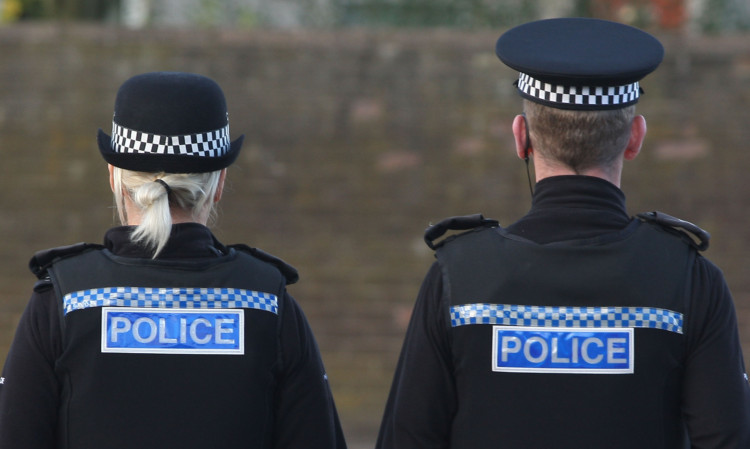Fife’s most senior police officer has described Police Scotland’s redistribution of chief inspectors as “essential change, not essential loss”.
In a presentation to Fife Council’s Police Transition Committee in Glenrothes, Chief Superintendent Garry McEwan confirmed the number of chief inspectors in Fife had been reduced from seven to four.
However, he backed the view of Police Scotland Chief Constable Sir Stephen House that the redistribution of ranks will ultimately improve frontline policing, with no reduction in officer numbers.
He said that, until recently, each chief inspector in Fife had been responsible for an average of 37 officers, compared with more than 200 per chief inspector in other parts of Scotland.
He said every chief inspector he had spoken to in Fife in the run up to the change had been of the opinion their patches were “too small”.
There was a feeling that “best value” was not being achieved under the previous set-up.
He confirmed Chief Inspector Gordon Mitchell (formerly Kirkcaldy) would now take over Dunfermline/Cowdenbeath/SW Fife; Derek McEwan (Glenrothes) would be responsible for Glenrothes/Kirkcaldy; Adrian Annandale (formerly traffic) had taken over NE Fife; while Graeme Kinmond, currently working in Levenmouth, would continue to do so.
If he decided to retire in nine months, Levenmouth and NE Fife would come together.
Chief Supt McEwan acknowledged this was a “time of change” but offered assurances that the “bedrock” of ranks in Fife would continue with eight community inspectors and the same detective inspector ranks.
He said Fife Division also remained committed to its community engagement plans, which he was “passionate” about.
Responding to concerns that the new chief inspector structure reduced promotion opportunities in Fife, he said there were arguably now more opportunities for officers to be promoted outwith Fife in what was now a single national force.
Committee chairman Councillor Gavin Yates said he was disappointed the Police Scotland corporate-led changes had happened just months after Sir Stephen House gave assurances the Fife model, with its seven chief inspectors, was a “keystone” that would continue.
Mr Yates said: “Unfortunately that’s now been ripped up and thrown away. I’d like to pay tribute to those who are moving on. They are very, very talented. But I feel Tulliallan’s gain is Fife’s loss.”
Councillor Margaret Kennedy, Fife Liberal Democrats’ police spokeswoman, expressed concern that councillors had lost some of their ability to scrutinise how decisions were reached.
She acknowledged there was no getting away from the decisions that had been made centrally, as Police Scotland strives to save £190 million. But she said new ways of communicatinghad to be found to assure the public.
Mr Yates raised concerns through The Courier last week about the chief inspector restructuring.
He also raised concerns about the committee no longer having oversight of police complaints through the “dip sampling” process.
He also expressed concern about potential moves to examine both the role of Scotland’s community traffic wardens and police station opening hours.
Mr McEwan confirmed traffic wardens and police counter services were being looked at nationally as part of a “holistic review”.
Regarding police station access, he said it was clear the ways in which the public was contacting the police was changing, with more going online or calling the non-emergency number, 101.
Mr Yates said he had received a letter from the Scottish Police Authority stating the dip sampling change was more of a “pause” than a “stop”.
The committee agreed to write to Sir Stephen House to seek assurances there would not be further cuts to the police officer structure.
